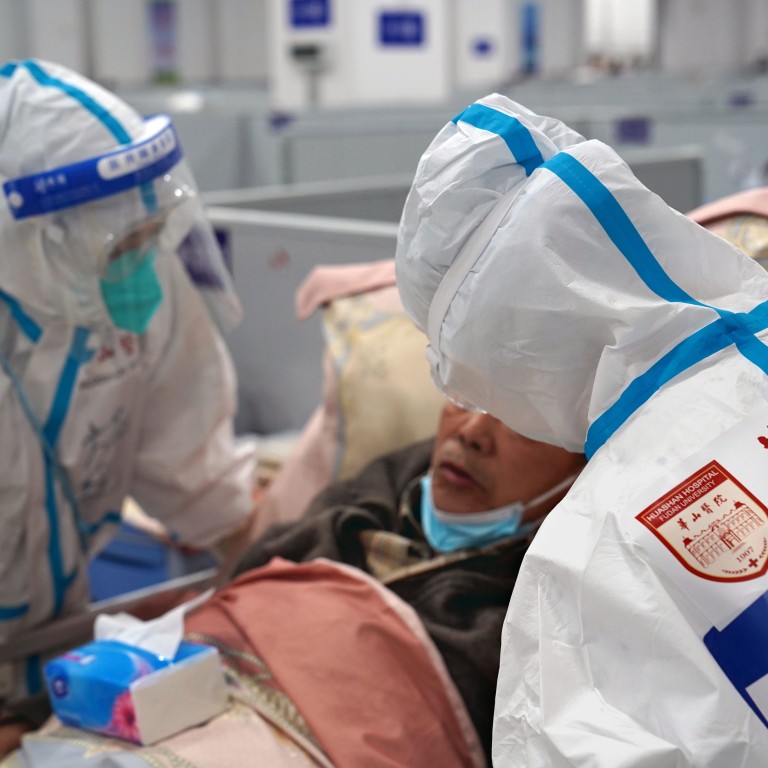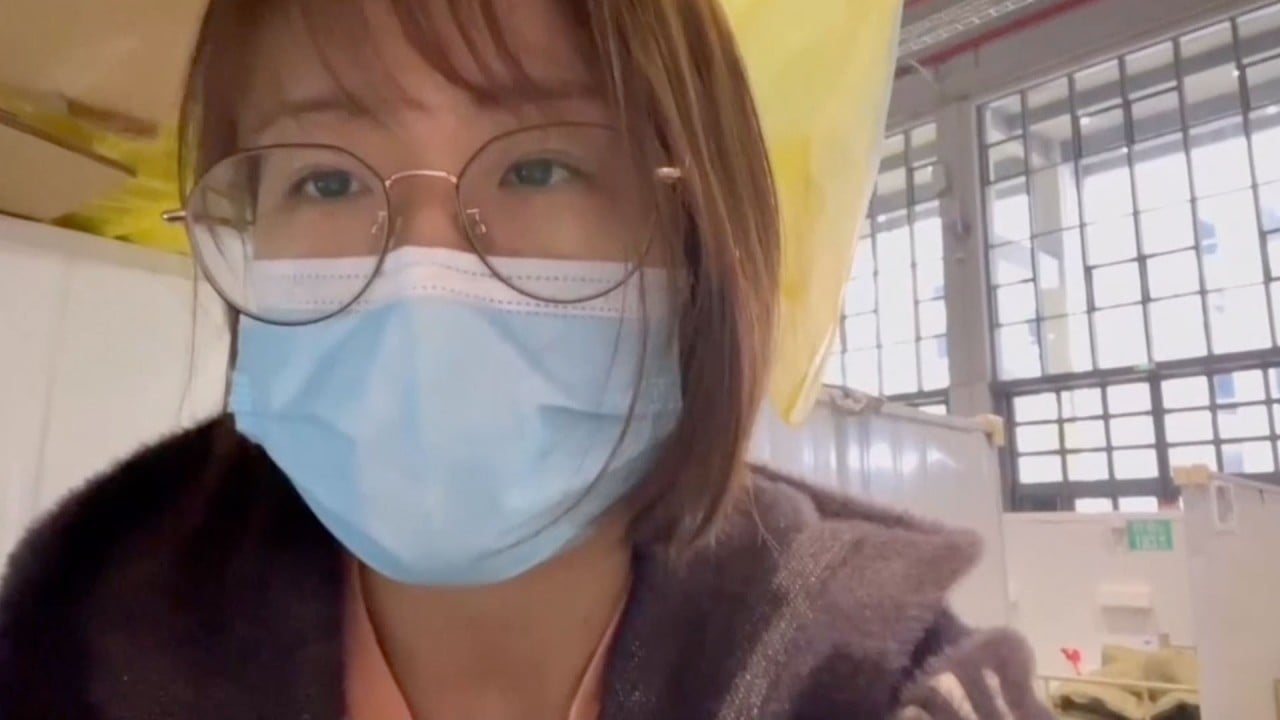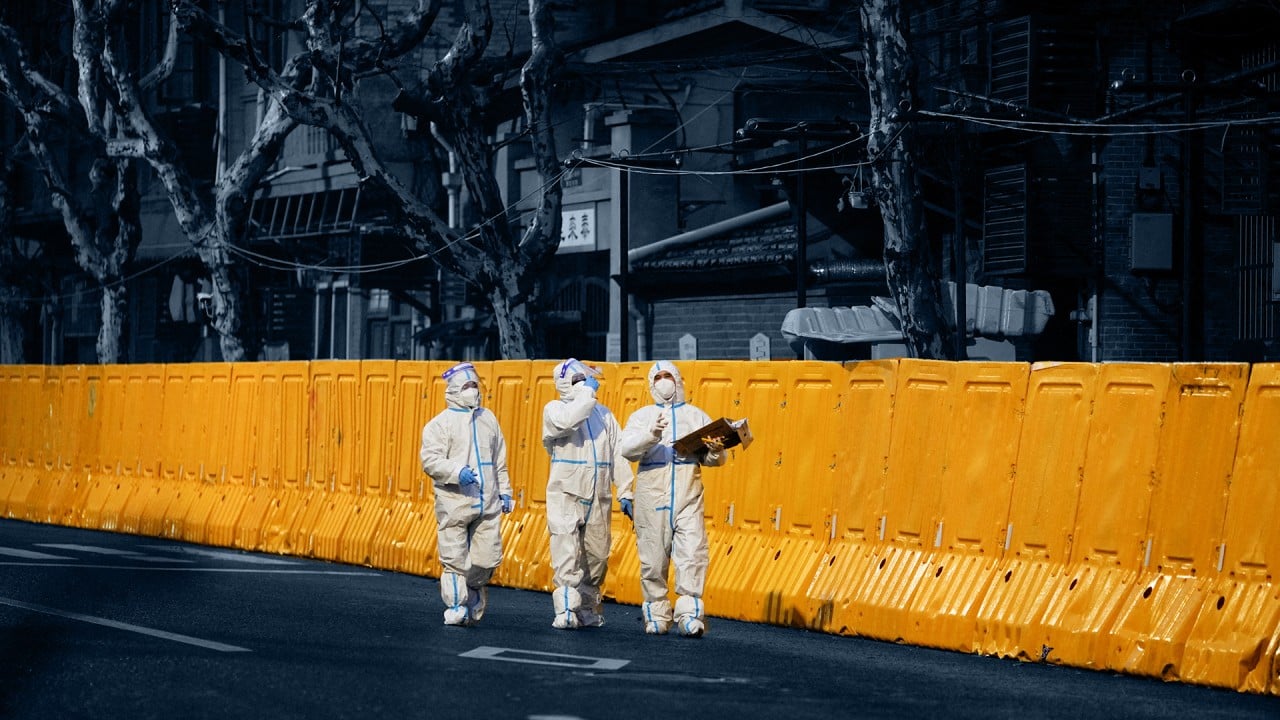
Covid-19 tests limits of Shanghai hospitals as Omicron infects already-ill elderly
- Infectious diseases expert Zhang Wenhong says treatment of coronavirus patients presenting with comorbidities strains medical resources
- Eight city-level hospitals have been consolidated to treat severe, critically ill patients with underlying diseases
The coronavirus-related death rate has accelerated in recent days, with 51 deaths confirmed on Monday.
Doctors said that while the growing number of cases tested the capacity of hospitals in the city, treating seriously ill people suffering comorbidities was the “biggest challenge”.
“Those patients with severe underlying diseases are not necessarily suffering from serious Covid-19 when infected, yet the treatment of the underlying disease is still a serious challenge.”
Treating such patients was straining medical resources, Zhang told People’s Daily on Sunday. They had to be admitted to a designated hospital, putting it under great pressure to not only treat Covid-19 symptoms but also provide the specialist care needed to treat underlying diseases, he said.
Wang Zheng, vice-president of Renji Hospital in Shanghai, whose southern branch was designated in early April for treating Covid-19 patients, said the hospital’s resources were “very limited”.
Shanghai’s Covid-19 lockdown takes heavy toll on young families
Shanghai-based Jiefang Daily reported that the hospital mainly admitted children, pregnant women and patients with kidney failure or other comorbidities and had just 50 beds in its intensive care unit. The hospital had 600 beds and aimed to improve efficiency to expand to 892 beds.
“We are developing potential in the venue and manpower. The health workers almost took no time off, but we have limited capacity to further ease the strain in medical resources,” Wang was quoted by Jiefang Daily as saying.
Wang Xingpeng, director of Shanghai Shenkang Hospital Development Centre, said in a briefing on Sunday that nearly 30 per cent of people in the designated hospitals were over 70 years old and 60 per cent of the patients had comorbidities. Among them, 40 per cent had three or four underlying illnesses.
Zhang Wenhong said the illnesses complicating patients’ condition included late-stage cancer, severe cardiovascular disease including heart failure and hypertension, neurological diseases including cerebral haemorrhage, cerebral infarction, end-stage liver cirrhosis, diabetes and uraemia.
He said Shanghai had put together nine critical care medicine teams, including 360 local experts and some who had travelled to Shanghai to help. Eight city-level hospitals were consolidated to treat severe, critically ill patients with underlying diseases.
WHO excess Covid-19 deaths data aims to reveal true cost of pandemic
Several higher-level hospitals supported district and even community-level hospitals.
“Our goal is to be rid of major risks from the epidemic for the elderly and the vulnerable … In the future, we will try to make designated hospitals not only for treating Covid-19 but also general hospitals for [Sars-Cov-2-positive cases] with serious underlying illnesses and improve their capability of different specialties,” Zhang said.
He said the deaths caused by underlying diseases would count as Covid-19 deaths, but even so, the case fatality rate in Shanghai was about 0.0178 per cent, with deaths directly from Covid-19 accounting for a very low percentage.



